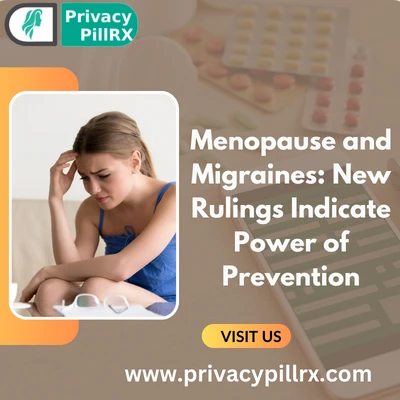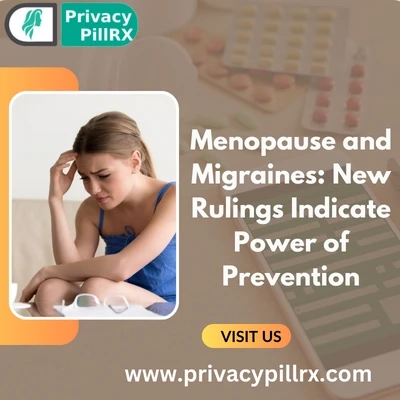
Menopause and Migraines have a very striking connection. The studies found that women who are prone to both migraines and pre menopausal symptoms like hot flashes and night sweats in adult life have a higher risk of stroke and cardiovascular disease. Meanwhile, women who only suffer from migraines have a higher risk of persistent symptoms of menopause later on.
If you are one of those women who suffer from both migraines and symptoms like hot flashes or night sweats, it might be a trouble to overcome the risk of stroke, heart disease, or any other cardiovascular issue. It could deeply affect women’s reproductive health or their overall health.
But the recent new findings indicate that prevention is possible. The study shows that women don’t need to worry as much, especially if they don’t have both migraines and long-term hot flashes, and/or night sweats.
Power of Prevention
With recent steps taken to protect women’s reproductive health and reproductive rights, a recent study has found the prevention method to avoid the risk of heart disease, stroke, or other cardiovascular crises due to the presence of migraines and vasomotor symptoms in adult life.
Women could use prevention as the power to overcome these threats, which could have a long-term effect on their health, especially their reproductive health. Women could certainly avoid these risks by making a few lifestyle changes:
• Getting proper sleep
• Regular exercise
• Nutrich-rich food
• Quitting tobacco
• Maintain weight
• And keeping blood pressure, sugar, and cholesterol in control
New studies have showcased higher cardiovascular risk for women with both migraines and symptoms like hot flashes and night sweats (vasomotor symptoms). This makes it even more crucial for women in this group to focus on prevention by adopting a healthier lifestyle.
For women who are in their 20s and 30s, who are prone to migraines, the new study suggests that they might be heading toward an increased risk of long-term menopausal symptoms when they get older.
Long-Term Study Gives Important Perception
A study was conducted at the University of Michigan, by Catherine Kim and her team, an academic medical center. The new study provides an in-depth insight and analysis of data, which involves 15 years of research on the 1,900 women who contributed their time and patience by volunteering for regular physical exams, blood tests, and yearly health surveys starting from their early teens to their late 30s.
Catherine Kim, the one who conducted the study along with her team, “The anxiety and fear that women with migraines and menopausal symptoms feel about cardiovascular risk is real -- but this ruling suggests that focusing on prevention, and correcting unhealthy habits and risk factors, could help most women,” she also added, “For the subgroup with both migraines and early persistent hot flashes and/or night sweats, and for women currently experiencing migraines in their adult life, this study point to a necessity to control risks, and address these symptoms early."
Those women who volunteered are now in their 50s and 60s, and they have provided some priceless views on the aspects that could shape health in the future leading to menopause and beyond, with their contribution to the CARDIA study.
This study indicates, that around 30% of women had persistent vasomotor symptoms or VMS (hot flashes and/or night sweats), among them 23% of women also had migraines, this group had an additional risk of heart disease, stroke, or other cardiovascular issues. As per the study, 43% of women started experiencing vasomotor symptoms in their 40s, but the symptoms were low after they entered their 50s, while 27% of women experienced an increase in VMS symptoms in their 50s and early 60s.
This group however had a lower risk of cardiovascular events once the risk factors were taken into consideration, whether they had migraine or not. Addressing medical issues with the help of hormone-based birth control and estrogen did not affect this risk.
Controlling Destiny
The study found that these women in their tender ages had both migraines and hot flashes and/or night sweats, plus depression, smoked cigarettes, were mostly black, and had very little education.
Catherine Kim, the leader of the study says, “These two studies, taken together, underscore that not all women have the same experiences as they grow older and that many are able to control the risk factors that might raise their risk of stroke and heart disease later in life,” she also added, “to conclude everything, women can do a lot to control their destiny when it comes to both menopause symptoms and cardiovascular diseases.”


